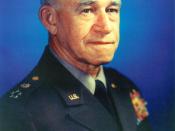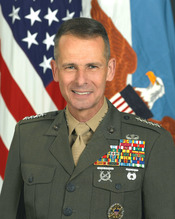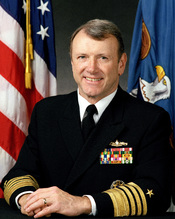We need strategists. In the Army and throughout the services. At all levels. We need senior generals and admirals who can provide solid military advice to our political leadership, and we need young officers who can provide solid military advice--options, details, the results of analysis--to the generals and admirals. We need military strategists, officers, all up and down the line, because it takes a junior strategist to implement what the senior strategist wants done, and it (usually) takes the input of juniors to help a senior strategist arrive at his conclusions. When he was Chairman of the Joint Chiefs of Staff, Admiral Bill Crowe said that what we need are people who can deal with "thorny problems--people in uniform who are expert in their warfighting specialties and also able to assist the National Command Authorities in matters of strategy, policy, resource allocation, and operations." These officers, he said, need to be tested leaders and skilled military technicians, open-minded and adaptable, knowledgeable of military history and the role of armed force in the world, and versed in the complexities of bureaucratic decisionmaking and the international interests of the United States and its allies.
This seems all too obvious, but if so, where are these strategists?
We can find plenty to read and study on the subject of leadership; in fact, there is a veritable mountain of studies, essays, and books explaining how to build leaders. Not so if one wants to build (or become) a strategist. Here the field of instructive works becomes thin. Of course, in some quarters the very idea of soldiers expounding on strategy is viewed with concern. Yet, the interest in strategy and the great strategists is as intense as it has ever been. On the other hand, the creating (a better word might be developing)...


